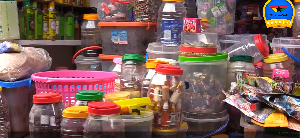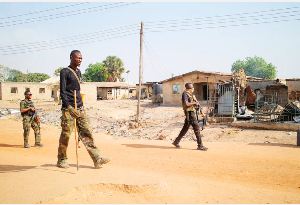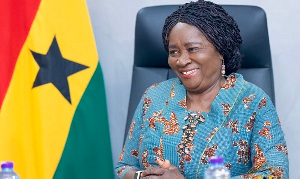Emerita Professor Elizabeth Ardayfio-Schandorf, Past Vice President, Arts and Sciences, Ghana Academy of Arts and Sciences (GAAS), has advocated a national dialogue on the role of the family in national development.
She suggested that in the light of the impact of ongoing globalization on the family, government should mobilize resources and talents to initiate such a national dialogue.
Emerita Prof Ardayfio-Schandorf, noted that towards that end, the GAAS, with its pool of expertise and human resources could partner policy makers for that compelling exercise.
She said such a dialogue should involve all stakeholders both public and private, including; non-governmental organizations and special agencies to debate the proposed agenda and come out with medium- and long-term Strategic Plans that would complement existing policies and plans to enhance the viability and stability of the family.
“For the achievement of our national goals depend on how well families are empowered to contribute to the national development agenda,” Emerita Prof Ardayfio-Schandorf, said in her third presentation in Accra during the GAAS JB Danquah Lectures (Series 54).
The JB Danquah Memorial Lectures Series was instituted in 1968 in memory of a Foundation Member of the Academy, Dr Joseph Boakye Danquah, who died in prison in February, 1965.
JB Danquah was a lawyer, philosopher, scholar, novelist, dramatist, politician and a journalist.
The event consists of a series of three lectures delivered by either a Fellow of the Academy or a distinguished non-Fellow.
Speaking on the topic “The Family, Climate Change and National Development, Emerita Prof Ardayfio-Schandorf said communities should be strengthened to promote patriotism and sustainability by involving local authorities and all relevant opinion leaders ensuring that family policies strengthened resilience of families and households by tackling environmental security, and by promoting water, soil, forest and energy conservation.
Emerita Prof Ardayfio-Schandorf, said as part of the campaign, families as well as governmental and non-governmental organizations, private sectors and individuals should be involved in afforestation conservation.
She urged policy makers to create opportunities through local agencies to educate families to understand cultural and relevant indigenous values and how to apply them when confronted with challenges relating to globalization and modernization.
Emerita Prof Ardayfio-Schandorf, recommended the establishment of a value-based system to influence sustainable development by applying the formulation of policies and reviewing legal frameworks for the family to determine needed strategies to strengthen the structure of the family to enable it to take critical decisions within its locus.
“Research is critical in every effort in developing national strategic plan and in dissemination of findings to decision making organs and concerned stakeholders as way forward in enhancing the role and impact of the family,” Emerita Prof Ardayfio-Schandorf, said.
“Educational institutions, research centres and non-governmental organizations and all related organs should focus on family related research.”
She suggested that monitoring and evaluation systems be set up at ministries and agencies backed up by a carefully designed organizational support to ensure desired and achievable outcomes were attained.
General News of Monday, 8 March 2021
Source: GNA













